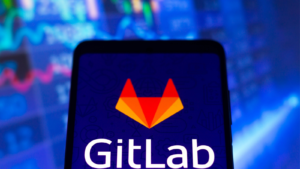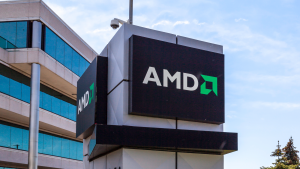
This article is an excerpt from the InvestorPlace Digest newsletter. To get news like this delivered straight to your inbox, click here.
The dot-com bubble made the early 2000s a terrible time to invest.
Shares of the best-regarded tech stocks were trading at enormous premiums, reducing their potential future returns. Even today, Cisco Systems (NASDAQ:CSCO) and Intel (NASDAQ:INTC) – two dot-com darlings – remain 40% below their January 2000 prices.
Meanwhile, non-tech companies fared no better. Growth at industrial giants like General Electric (NYSE:GE) was slowing, and many firms were finding themselves on the wrong side of the Internet Revolution. GE itself is down 65% since 2000.
But daring investors would have found ways to make money. Shares of Amazon (NASDAQ:AMZN) are up 3,950% even after including its 2000-01 bust. Apple (NASDAQ:AAPL) – a near-bankrupt company at the time – is up 16,000%. And semiconductor maker Nvidia (NASDAQ:NVDA) is up 26,650%.
Interestingly, these three winners had one thing in common:
They were all “moonshots.”
- Amazon was a risky startup looking to revolutionize the way people shop. (I remember wondering how anyone could sell $5 used books with free shipping!)
- Apple was near bankruptcy just three years before.
- And Nvidia was a relative minnow that had just won a contract to create graphics cards for the first Xbox video game console.
Today, the AI Revolution is putting history on repeat:
- AI Stocks. Shares of the “Magnificent 7” tech stocks are so expensive that their return profiles now look like the Ciscos and Intels of 2000. It’s hard to imagine Apple tripling to become a $10 trillion firm.
- Non-AI Stocks. Many non-tech sectors are getting left behind. The first quarter of 2023 alone saw 14 retailer bankruptcies, its third-highest pace since 2011.
- Moonshots. However, overlooked growth companies are quietly snapping up market share from incumbents while still trading at fractions of their 2021-22 highs.
That means investors seeking the next breakout AI stocks must focus on moonshots with an enormous runway for growth.
Not every moonshot will win, of course. But landing a single quadruple-digit winner is enough to offset dozens of picks that go nowhere.
This week, on Thursday, July 27, at 7 p.m. Eastern, InvestorPlace’s top analysts – Louis Navellier, Luke Lango, and Eric Fry – are holding their first ever joint AI event. There’s a major development unfolding in the world of AI and it’s about to send shockwaves through the stock market.
Reserve your spot for that event here.
In the meantime, the writers at InvestorPlace.com – our free news and analysis site – and I highlight five of those moonshot AI stocks…
5 Moonshot AI Stocks to Buy Immediately: Upstart (UPST)

This AI lending platform uses nontraditional data to help companies predict creditworthiness. The company works with at least 99 banks, counts 2.6 million end customers, and has helped originate $32 billion in loans. Its AI-powered predictive models allow banks to approve the same number of loans with a 53% lower default rate than competitors.
That means the $4.5 billion Upstart Holdings (NASDAQ:UPST) could eventually unseat the four incumbents – Experian (OTCMKTS:EXPGY), Fair Isaac (NYSE:FICO), TransUnion (NYSE:TRU), and Equifax (NYSE:EFX) – which together are worth almost $100 billion.
This week, InvestorPlace.com’s Chris MacDonald highlights Upstart in his article “3 Millionaire-Maker Stocks to Buy Before the Window Closes.”
In it, he explains that Upstart’s entry into the home equity market could be a game changer, given the size of the $3 trillion mortgage origination industry.
The firm’s AI platform also sets it apart. Unexpected loan losses (i.e., when borrowers default) is the single largest risk to banks. Upstart’s ability to reduce these risks will help it hit roughly $1 billion in revenue by 2025, up 80% from an expected $550 million this year.
2. GitLab (GTLB)

This week at InvestorPlace.com, Alex Sirois highlights GitLab (NASDAQ:GTLB) in his piece “7 Growth Stocks to Buy to go Beyond the Magnificent 7.”
Convincing customers to buy is the most difficult part, and once onboard they can be incrementally upsold. That is precisely what GitLab has done based on its net retention rate of 128%. That means GitLab is retaining and expanding its customer base.
Essentially, GitLab is a development platform (also known as DevSecOps) that helps software developers collaborate, deploy projects, and check their work for security issues. It’s a crucial element in a world where a single app can have hundreds… if not thousands… of developers working simultaneously.
Coders also like using GitLab – an intangible element that sets it apart from many legacy programs. It’s an essential ingredient for increasing adoption and upselling services.
Behind the scenes, GitLab is also riding two important AI waves.
Revenue-boosting AI. The company will add ModelOps this year, a $9-per-month add-on that is capable of writing code suggestions. This will allow GitLab to produce far more revenue from its existing client base and create barriers to entry as coders get used to a particular code-completion system.
Customer demand. Nearly every company is going to become a software company at some point. AI is putting this truth into overdrive, increasing demand for GitLab’s platform and services.
Analysts expect GitLab to grow at roughly 30% per year through 2025, and TradeSmith’s Predictive AI system expects the stock to rise another 3.3% this month, a 47% annualized rate of return.
3. C3.ai (AI)

Most traditional investors are understandably split over C3.ai (NASDAQ:AI), an enterprise AI platform.
On the one hand, C3.ai is a leader in a field largely devoid of direct competitors. Most large companies use company-specific AI platforms that are developed by firms like Accenture (NYSE:ACN) or Lockheed Martin (NYSE:LMT) that string together dozens of third-party components. C3.ai streamlines the process by putting everything on a single platform.
But C3.ai is risky because of its high valuation, inconsistent profitability, and allegations of misrepresentation.
In 2022, the firm faced an investor lawsuit claiming the AI firm overstated its relationship with Baker Hughes (NYSE:BKR), which comprised 45% of the startup’s revenues. Ex-employees also accuse the firm of a “culture of fear … that filtered down from the top.”
Nevertheless, the writers at InvestorPlace.com and I believe C3.ai remains a compelling AI moonshot. This week, Chris MacDonald notes how the AI platform company actually trades at a discount once growth is considered:
As C3.ai scales up its operations, inconsistent profitability is expected to be resolved, paving the way for a more promising future.
Analysts expect the firm to break even by 2024 and generate up to $52 million in net income the following year.
Though the company has plenty of risks, C3.ai is a firm that finds itself at the right place at precisely the right time.
4. Advanced Micro Devices (AMD)

Regular InvestorPlace.com readers will know that I’m generally not a fan of second-best companies.
Consider the Uber-Lyft rivalry… or the Google-Yahoo! one.
In most cases, higher-returning rivals generally have the upper hand, since past success generates more cash for research and development (R&D) and a host of other benefits.
The best firms turn into “perpetual money machines.”
However, Advanced Micro Devices (NASDAQ:AMD) – the No. 2 graphical processing unit (GPU) developer to Nvidia’s No. 1 status – is different thanks to two factors:
- Networking/AI. AMD’s 2022 acquisition of server networking firm Xilinx gave it access to a fast-growing segment that’s getting supercharged by AI applications
- Management. Its forward-looking chairman and CEO, Dr. Lisa Su, has quickly pivoted the firm to higher-end AI products.
The first point is hammered home by InvestorPlace.com writer Vandita Jadeja this week in her article “3 Semiconductor Stocks That Will Skyrocket Before 2025.” In it, she points out that AMD now “has a diversified business model and does not depend on any one product or service for revenue.”
A recent decline in PC sales has been entirely offset by its growing revenue in data centers and gaming. That makes AMD competitive in areas where it’s only the No. 2 player.
The second point is highlighted by a former AMD executive who, in a recent Fortune article, remembers his firm as “deader than dead” before Su took the reins in 2014.
“Our technology wasn’t competitive at the time,” Su admitted in that article.
Since then, the Silicon Valley-based chip designer has embarked on a massive turnaround, focusing itself on higher-end graphics cards and other cutting-edge chips. Its Zen architecture launched in 2017 is now a mainstay of data centers. And Su has also focused the firm on AI applications, claiming that, within five years, “you will see AI in every single product at AMD, and it will be the largest growth driver.”
Though Nvidia might seem like the No. 1 GPU designer in the world, second-place AMD still has plenty of ways to catch up.
5. Sabre (SABR)

Finally, Eric Fry highlights this week how AI is helping one beaten-down stock recover.
The company is Sabre (NASDAQ:SABR), one of the three companies that run the oligopolistic global distribution system (GDS) of airline and hotel ticketing. It’s the system that allows airlines, agents, and travel booking websites like Expedia to update prices, show availability, and make reservations.
Sabre was particularly hard-hit by the Covid-19 pandemic because of legacy debt load from its private-equity days. The company spent $295 million in 2022 paying down interest, swinging the firm into a deep loss.
Nevertheless, AI is quickly helping Sabre turn a corner.
Here’s from Eric:
By gathering real-time data from airline partners, Sabre can use its AI suite of products to provide real-time insights and machine learning models to increase revenue opportunities by moving from static pricing rules to targeted offers.
And it’s already paying off. Sabre has seen an overall 3% increase in overall airline revenue for the airlines using their AI systems. The booking firm plans to use these proceeds to pay down debt and return to profitability.
Sabre is also one of the highest-rated picks of TradeSmith’s An-E model. When I checked on Thursday, the system expects shares to return 3.84% over the next 30 days, a 57% annualized rate of return. Though Sabre’s stock has fallen 85% since 2019, its low $3.80 entry price now makes it an AI moonshot worth buying.
Conclusion: What About Nvidia?
Today, Nvidia remains one of the most direct beneficiaries of the AI Revolution. The company has a multiyear head start in GPUs, the “brains” that train AI models. It’s also a leader in automotive AI chips – an essential piece of self-driving vehicles.
But Nvidia’s sudden rise makes future gains less likely. If a stock doubles in value today, that gives 50% less upside for our future selves to enjoy.
The company’s $1.2 trillion market capitalization also makes gains increasingly difficult to achieve. Adjusted for inflation, even Oracle only ever hit $950 billion during the dot-com bubble.
That’s why our three top analysts – Louis, Luke, and Eric – are coming together this Thursday, July 27, at 7 p.m. Eastern to reveal a major AI development that will cause a massive disruption to the stock market… and the way to profit from it. Sign up here.
As of this writing, Tom Yeung did not hold (either directly or indirectly) any positions in the securities mentioned in this article. The opinions expressed in this article are those of the writer, subject to the InvestorPlace.com Publishing Guidelines.




